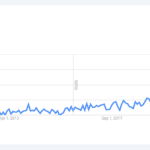Reading Time: 2 min The list of ways where Google is falling short continues to grow, and none of them have to do with AI. Well, maybe some do, but none that I’m talking about today. As I recently shared, Google’s approach over the last few years is very clearly aimed at shareholders instead of users, and it’s going […]
Trust
Swipe right on Android to see why Google is heading the wrong way
Reading Time: 3 min Google is no longer the darling that it once was. While it’s still clearly a huge, powerful and (generally) helpful company, it’s trending the wrong way. Business Insider compares Google to lumbering giants like IBM, and last year I shared how Google’s treatment of RSS ended up being horrible for the health of the internet […]
Pig butchering for cryptocurrency
Reading Time: 2 min It’s a weird-sounding name, but you’ve likely seen it happen. You get a weird text from an unknown number, with something fairly innocent like “how are you doing?“, and it slowly evolves into a full conversation. The text is from a scammer, and over the course of a few days they try to build a […]
Artwork is signed because it matters who created it
Reading Time: < 1 min I’ve mentioned a few times on here that I’m not a fan of companies that put a “designed by” link in the footer of websites that they create. Google clearly says not to do it, and putting a link there is entirely for the (misguided) advantage of the designer, to the detriment of the site […]
Dance incoherently or just admit that you don’t know the answer
Reading Time: 2 min I’m a big believer in admitting when you don’t know the answer. That kind of truthfulness in meetings leads to better results, and ideally leads to additional learning by being less wrong than I was before. In “Poor Charlie’s Almanack“, Charlie Munger compares people who think they’re never wrong with bees that don’t know how […]
Legality is not morality
Reading Time: 2 min A few weeks ago, at the encouragement of a friend, I joined a Zoom session with a bunch of marketing folks that meet every month. Previous topics have looked interesting, but my calendar didn’t allow me to attend until this one. The subject this month? “How to improve your cold email outreach.” It was as […]
We suggest this one
Reading Time: 2 min Almost every transaction that you make comes with some kind of push for an upsell. The question is, are they trying to upsell you just to make more money, or are they honestly trying to help you get more out of your purchase? It undoubtedly varies from company to company, but I see three things. […]
Early weaknesses lead to great trust
Reading Time: < 1 min When you’re showcasing a product or a service to a potential client, sharing the weaknesses of your product early can be a great way to gain more trust. From Robert Cialdini’s book “Pre-Suasion“: Rather than succumbing to the tendency to describe all of the most favorable features of an offer or idea up front and […]
Marketing isn’t magic
Reading Time: 2 min I was talking to a friend a few weeks ago that was working with a new company. That company had been outsourcing their SEO (Search Engine Optimization) work to another firm for a few thousand dollars a month, but it was unclear exactly what that other firm was doing. When asked for details on what […]
Do your own research?
Reading Time: 2 min The phrase “do your own research” has exploded in popularity in recent years, as you’ve likely noticed. Here is a chart showing the popularity of the phrase on Google over the last 15 years: At first glance it’s seemingly a good thing, and ultimately it can be. However, there are a few major problems with […]









